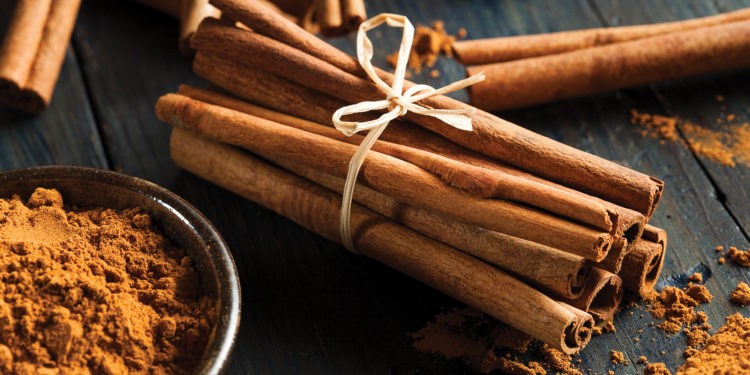Spices for Life

Since March is the Academy of Nutrition and Dietetics National Nutrition Month, it serves as an excellent reminder to make healthful choices in diet that reduce your risk of chronic diseases. A healthy choice you can start with is adding some spice to your life! Not only do spices enhance food flavors but they pay dividends to your overall health and well-being. Research shows that using a variety of spices, especially for replacing sugar and salt in food can help manage and even cut down your odds for developing harmful health conditions. With this fresh new season of spring, put on a marching step and add these spices for a rich and meaningful life.
Cinnamon
As one of the oldest spices in the world, cinnamon has held a long lasting reputation for having been used for over 4,000 years as both a medicine and a spice.
Health Benefits…
Anti-Diabetic Effect
According to the American Diabetes Association, more than 290,000 people in the Kansas City area are affected by diabetes while many others already have the condition and don’t even know it. For those with diabetes, it’s all about balance, by controlling the peaks and valleys of blood sugar levels. The reason why cinnamon is so helpful is because it slows the rate at which the stomach empties after meals, thus reducing the rise in blood sugar after eating. In a study published in the December 2003 issue of Diabetes Care, researchers evaluated 60 people with type 2 diabetes who were divided into six groups and gave them a range of daily cinnamon dosage varying from one to six grams. After 40 days, all three levels of cinnamon reduced blood sugar levels by 18-29%.
Brain Power
Wanting your brain to stay fully focused on making nutritious and healthy choices? Just incorporate cinnamon into your regimen. A study presented at the annual conference of the Association for Chemoreception Sciences found that even smelling this stimulating spice enhanced brain power for tasks relating to attentional processes.
ADD CINNAMON TO…
- A cup of coffee
- Oatmeal with mixed nuts
- A creamy yogurt parfait
- Whole wheat bread with a spread margarine and a pinch of sugar
- Baked apple slices, drizzled with honey
Main Recommendation: Serving as a sweet spice, cinnamon can be used in part or in full to replace sugar in food.
Turmeric
This golden yellow gem has been an ancient spice celebrated for centuries as botanical medicine and healing food for prevention.
Health Benefits…
Heart Health
According to the Kansas Department of Health and Environment, heart disease is the top cause of death in Kansas City and the US which can be reduced by adding this yellow spice. Being filled with anti-inflammatory properties, loaded with compounds which open up blood vessels, and comprised of agents that regulate blood pressure, turmeric serves as an all-star for a happy heart.
Anti-Cancer
Free radicals are harmful oxygen molecules that punch holes in healthy cells which can contribute to cancer and surround you on a daily basis. Fortunately, antioxidants work to combat and block the damaging effects of free radicals and turmeric is packed filled with them. The special compound is curcumin, which research done with test animals has been shown to lessen the growth of cancerous cells and hinder the growth of tumors. According to the American Association for Cancer Research, when scientists gave mice turmeric, it reduced the risk of colon cancer by 58 percent.
ADD TURMERIC TO…
- Roasted cauliflower, winter squash, sweet potatoes
- Garlic hummus
- Lentil soup
- Brown rice dishes
- Stir-fry’s and marinades with chicken, red meat, or tofu
Main recommendation: Due to its savory taste, turmeric can be added as an alternate to sodium in food.
Seasoning food with these spices will not only will add years to your life but life to your years. Here’s to a spice-filled life!
Sources: Lyfe Botanicals, The Academy for Nutrition & Dietetics, Prevention, American Diabetes Association, Diabetes Care, Kansas Department of Health and Environment, American Association for Cancer Research.






